Search Results
Search
Filter results:
Advanced Filters
Your search returned 562 Solutions
-
Inclusive Education
rolled out throughout Ghana
Ghana's inclusive education policy and a comprehensive implementation plan (2015 to 2019) have led to the nationwide introduction of inclusive education. The programme started in 2009, by 2011 a total of 529 schools were participating and 1,322 teachers and specialists from the Ghanaian Education Service were trained.
Ghana Education Service, Special Education Division, Inclusive Education Policy, Ghana -

Canada ́s New Brunswick forbids segregated education
Canada’s province of New Brunswick adopted a legally-binding policy on Inclusive Education in 2013, setting out clear and easy to follow requirements for all public schools, installing education support teams, and defining Personalized Learning Plans. It forbids segregated settings and targets all children, not only those with disabilities.
New Brunswick Department for Education and Early Childhood Development, Policy 322 on Inclusive Education of 2013, Department of Education and Early Childhood Development, New Brunswick, Canada, Canada -
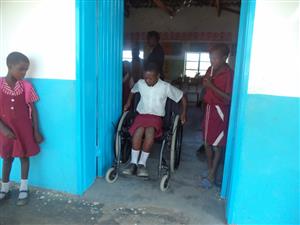
Integrating Inclusive Education in local communities in Zimbabwe
The project’s two model schools have a total enrolment of 738 children, including 85 with disabilities. 7 teachers were trained in sign language and Inclusive Education issues, as well as 14 school development committee members. Some 2,000 community members were informed on Inclusive Education through awareness campaigns.
Jairos Jiri Association, Zimbabwe -
The right to youth education
The law enables young people with special needs to attain personal, social and vocational competencies through a three-year youth education. The training is based on a person-centred curriculum. It can take place in different schools or in the form of work experiences, and is completed with a certificate.
Danish Ministry of Children and Education, The right to youth education, Denmark -
Persons with intellectual disabilities working as university lecturers
The Institut für Inklusive Bildung qualifies people with intellectual disabilities and provides them with job opportunities, mostly teaching about the specific requirements of people with intellectual disabilities. As "education specialists" ("Bildungsfachkraft") they teach in high schools, speak at conferences, and conduct workshops.
Institute for Inclusive Education, Germany -
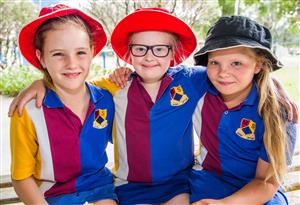
A rights-based approach for young people to have a place in mainstream classrooms
The Inclusive Education Policy, implemented in 2018, is designed to ensure that all children and young people in Queensland attend their local state school. Each institution is allocated appropriate resources and funding. Individual support during implementation is provided by regional inclusion coaches.
Queensland Department of Education, Inclusive Education Policy, Australia -
Inclusive Education in post-war instability
The effective and creative use of resources has enabled a programme of inclusive education and early intervention to be rolled out in the Kurdistan region of Iraq. In 2007, the programme covered 42 schools, 62 teachers and 316 children. In 2010, there were 318 schools, 400 teachers and 2,051 children.
UNICEF - Iraq, Inclusive Education Programme of 2007 by the Ministry of Education, Iraqi-Kurdistan, Iraq, Iraq -
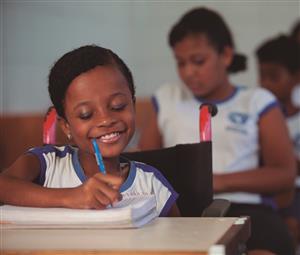
Brazil’s billion dollar National Plan for Inclusive Education
Among the measures of "Life without Borders" were accessible classrooms and transportation, access to technical training and higher education, as well as a Continuous Cash Benefit School Programme to help schools to locate out-of-school children with disabilities and to enrol them in school.
Presidency of Brazil, Secretariat of Human Rights, National Plan of Rights of Persons with Disabilities ‘Living without Limit’ of 2011, Secretariat for Human Rights of the Presidency and 15 federal ministries, Brazil, Brazil -
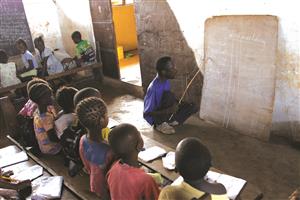
Mandatory minimum standards for education in emergencies
The INEE Minimum Standards for Education articulate the minimum quality and access to education for people affected by disasters and crises. They are mandatory worldwide since 2010. The accompanying INEE toolkit contains practical, field-friendly instructions for educators, aid workers and authorities.
INEE - International Network for Education in Emergencies, INEE Minimum Standards for Education: Preparedness, Response, Recovery and INEE Toolkit of the Inter-Agency Network for Education in Emergencies (INEE); implemented by Ministries of Education, policy-makers, teachers, humanitarian agencies and humanitarian workers worldwide., United States of America -
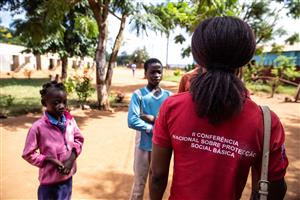
Inclusive Teacher-Training Centres
ADPP, a Mozambican NGO, and Light for the World are working together to transform rural teacher-training centres (TTC) into centres of expertise on Inclusive Education. ADPP acts as the implementing partner, while Light for the World provides most of the funding as well as the Inclusive Education expertise.
ADPP - Aid for the Development of People for People Mozambique, Teacher Training Centres, Mozambique
- Page 1
- Page 2
- Page 3
- Page 4
- Page 5
- Page 6
- Page 7
- Page 8
- Page 9
- Page 10
- Page 11
- Page 12
- Page 13
- Page 14
- Page 15
- Page 16
- Page 17
- Page 18
- Page 19
- Page 20
- Page 21
- Page 22
- Page 23
- Page 24
- Page 25
- Page 26
- Page 27
- Page 28
- Page 29
- Page 30
- Page 31
- Page 32
- Page 33
- Page 34
- Page 35
- Page 36
- Page 37
- Page 38
- Page 39
- Page 40
- Page 41
- Page 42
- Page 43
- Page 44
- Page 45
- Page 46
- Page 47
- Page 48
- Page 49
- Page 50
- Page 51
- Page 52
- Page 53
- Page 54
- Page 55
- Page 56
- Page 57